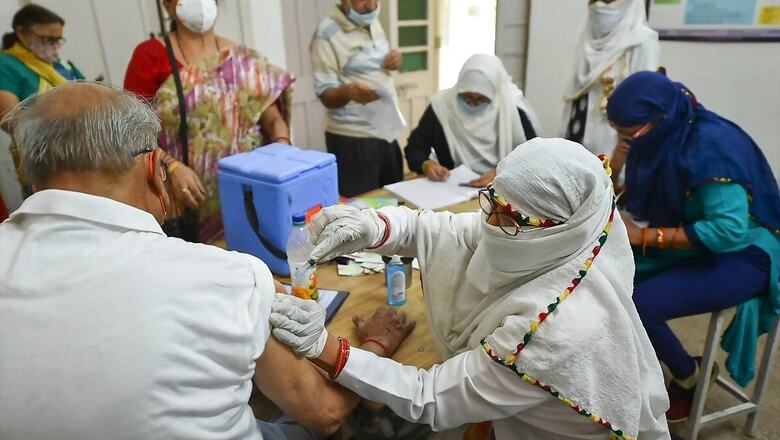
views
The Union health ministry agreed on Thursday to extend the gap between two doses of Serum Institute of India (SII)’s Covishield to 12-16 weeks, acting on the recommendation by an advisory group on Covid-19 vaccines in India.
There is no change for Bharat Biotech’s Covaxin; the two doses of this vaccines are administered four-six weeks apart.
“Based on the available real-life evidences, particularly from the UK, the COVID-19 Working Group agreed for increasing the dosing interval to 12-16 weeks between two doses of COVISHIELD vaccine. No change in interval of COVAXIN vaccine doses was recommended,” a government statement said.
Earlier in the day, the National Technical Advisory Group on Immunisation (NTAGI) made a recommendation to increase the interval between two doses of Covishield. The National Expert Group on Vaccine Administration for Covid-19 — headed by Niti Aayog member VK Paul — accepted this proposal in a meeting.
The gap between two shots of Covishield, or the Oxford-AstraZeneca vaccine manufactured in India by SII, was increased from four-six weeks to six-eight weeks in April.
Thursday’s development comes in the backdrop of India facing a supply shortage in the middle of a catastrophic second wave.
According to data from late-stage trials in Britain and Brazil, the vaccine is up to 90% effective when given as a half dose followed by a full dose at least a month later. But there is not enough data to put this idea to work.
Countries such as the UK and Canada administer the two doses of the vaccine 12 weeks and 16 weeks apart, respectively. Experts point out that the vaccine leads to improved immune response with a gap in the time period.
The increased of the interval will help the country on two fronts.
First, it could ease the skyrocketing demand for vaccines in the backdrop of India making all adults eligible for the shot from May 1. With more candidates on the way — other than Covishield and Covaxin that are currently in use — the move could address a crippling supply crisis that many states have complained of.
Second, if the rush for the second dose slows down, officials could focus on vaccinating more beneficiaries with the first dose, which gives some degree of protection before the second dose is administered. For example, recent data by the Korea Disease Control and Prevention Agency (KDCA) showed the AstraZeneca vaccine is 86.0% effective at least two weeks after a first dose among people aged 60 and older.
Read all the Latest News, Breaking News and Coronavirus News here. Follow us on Facebook, Twitter and Telegram.




















Comments
0 comment